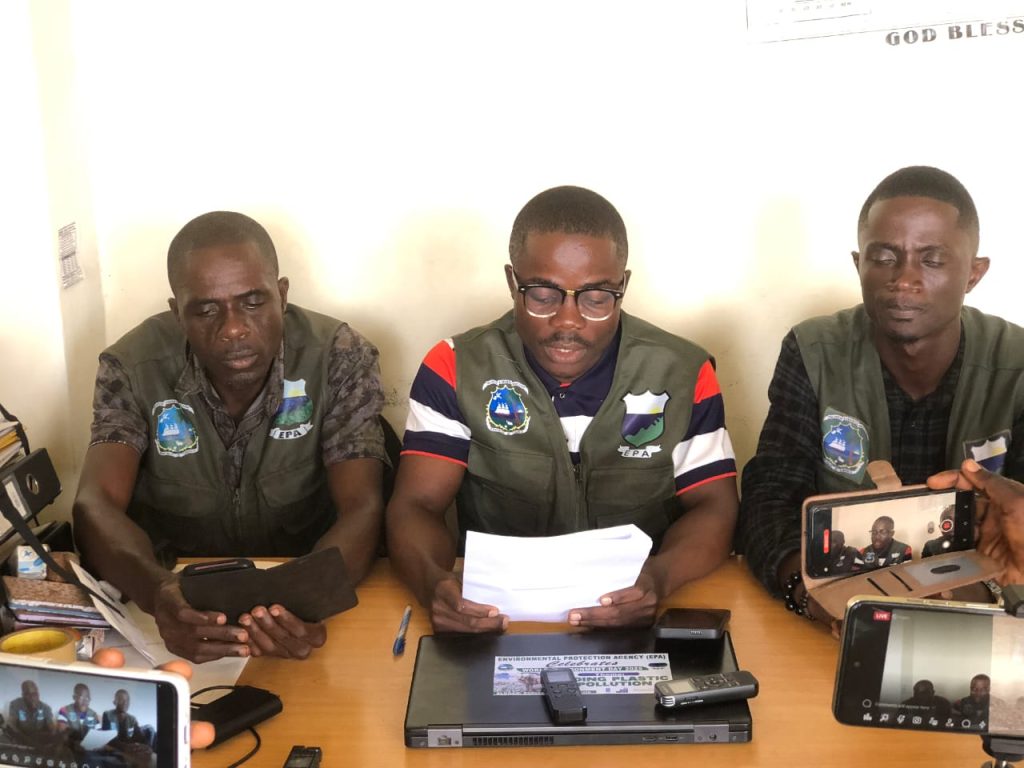The Environmental Protection Agency (EPA) of Liberia has initiated a renewed effort to enforce environmental regulations in Maryland County. A newly deployed team, led by James P. Pude, aims to revitalize awareness and compliance with existing environmental laws, which have been largely overlooked despite the decade-long presence of an EPA office in the county. This initiative underscores the EPA’s commitment to upholding the right of every Liberian to a clean and healthy environment, as enshrined in Part II, Section V of the Environmental Protection and Management Laws. The team encourages citizens to report any environmental issues that infringe upon this right, promising swift action to address such concerns.
Central to the EPA’s focus is the mandatory Environmental and Social Impact Assessment (ESIA) for any project or activity with potential environmental consequences, as stipulated in Part III, Section 6 of the environmental laws. This encompasses a broad range of sectors, including agriculture, livestock management, forestry, fisheries, wildlife, tourism, energy, petroleum, manufacturing (food and beverage, textile, chemical, construction, and metal), extractive industries like mining, waste management, land reclamation, and water supply projects. The EPA emphasizes the necessity of obtaining the required permits and licenses before commencing any such activities. Furthermore, adherence to President Boakai’s Executive Order #143, which prohibits activities detrimental to Liberia’s beachfront, waterways, and wetlands, is paramount.
The EPA’s mandate extends to the regulation of chemical usage. All imported chemicals must be registered, and companies utilizing chemicals in their operations, such as Maryland Oil Palm Plantation (MOPP), Cavalla Rubber Corporation (CRC), and GSI, are required to obtain both Effluent Discharge Licenses and Chemical Registration Licenses. The EPA underscores its authority to inspect facilities, land, premises, vessels, and vehicles without prior notice, as empowered by Section 22 of the EPA Act. Obstructing these inspections will result in punitive actions.
The EPA clarifies its role, emphasizing that its focus is not on land ownership disputes but rather on regulating activities conducted on the land. Consequently, all construction projects, regardless of their scale or location, must comply with environmental regulations. The EPA urges collaboration with the Ministry of Public Works and City Corporations to ensure environmentally sustainable infrastructure development within Maryland County. This proactive approach aims to mitigate potential environmental damage and promote responsible construction practices.
Beyond industrial activities, the EPA is also addressing community health and sanitation practices. Community burials are discouraged, with the EPA advocating for burials in certified cemeteries. Embalming procedures are restricted to funeral homes, prohibiting such practices in hospitals or other healthcare facilities. These regulations aim to minimize health risks and ensure proper handling of deceased individuals.
The EPA emphasizes its commitment to enforcing these regulations, warning that non-compliance will result in penalties, including fines and potential shutdown orders. This firm stance underscores the agency’s dedication to safeguarding Liberia’s environment and protecting the health and well-being of its citizens. The outreach campaign in Maryland County serves as a clear signal of the EPA’s renewed focus on environmental protection and its commitment to holding individuals and organizations accountable for their environmental impact. This comprehensive approach, encompassing industrial activities, construction projects, and community health practices, aims to foster a culture of environmental responsibility and sustainability within Maryland County.














